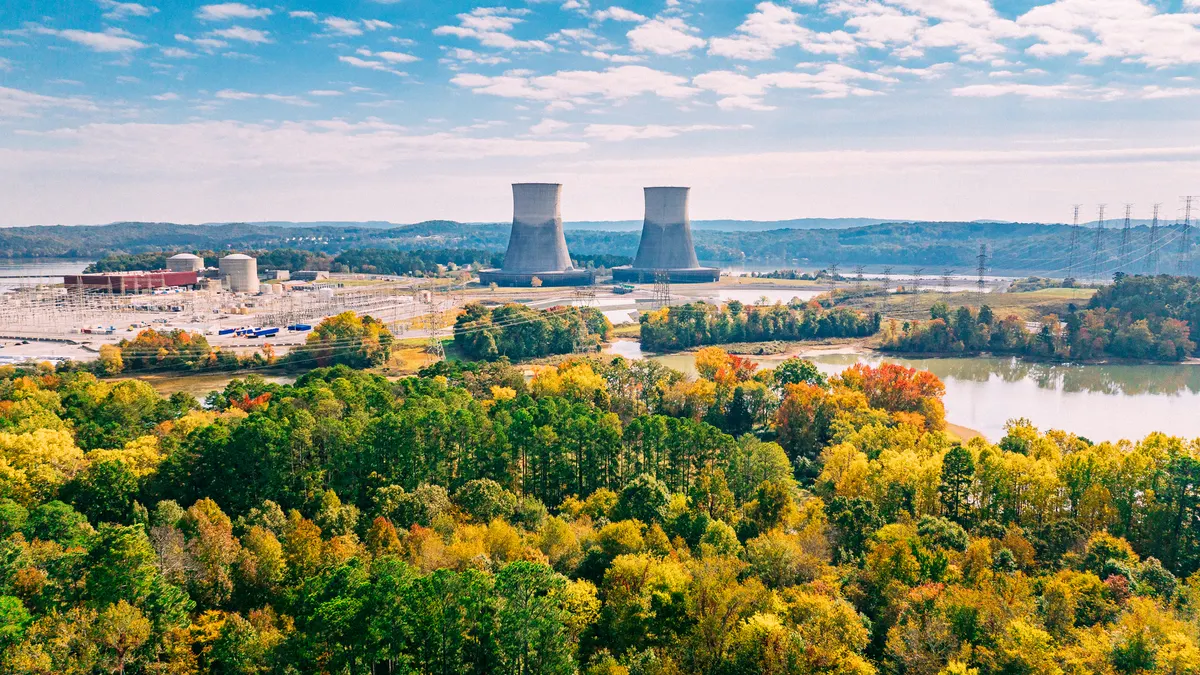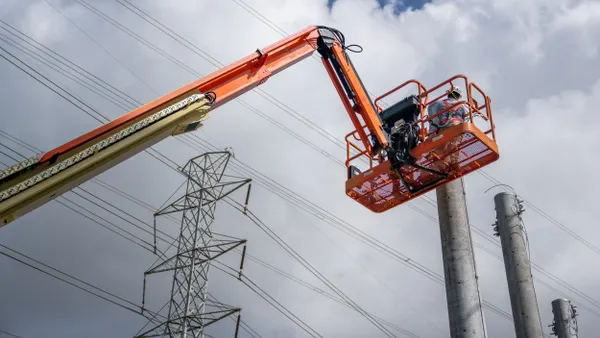With energy demand soaring due to greater electrification and the growth of data centers, all eyes are now on nuclear power to revive its role as a key component of the U.S. energy portfolio. Recent executive orders are facilitating the reopening of shuttered nuclear plants, such as the Palisades plant in Michigan, which is just one of the planned recommissions around the country.
This “nuclear renaissance” means that more employees are needed in the nuclear sector, and those already employed who have industry expertise need to be retained. The nuclear workforce is already older than other segments of the energy industry, with 60% of nuclear employees aged 30–45. Public and private employers must therefore invest in recruiting and training employees with the necessary technical skills, but they also must identify candidates with the right personality traits for this unique industry.
Working in a nuclear power plant can be stressful — in addition to technical competency, it requires a commitment to safety culture and teamwork. The legacy of accidents such as Three Mile Island and Chernobyl means the stakes are high, and 80% of significant events at nuclear facilities have been attributed to human error.
HR teams need a robust toolset to find the right employees and support the physical and mental health of those they currently have. Assessments are a valuable part of that toolset, and they can equip HR professionals in the nuclear industry with data that helps them support the well-being of this critical energy workforce.
How assessments assist in recruiting
Assessments such as the Minnesota Multiphasic Personality Inventory®-3 (MMPI®-3) can bring value by providing information about attitudes and personality traits that can inform how a candidate may approach a given job role. While HR teams should not be expected to interpret the MMPI-3 as clinical practitioners would, the assessment can be a rich source of information for them. By going beyond resumes and interviews, such tools give hiring teams a deeper understanding of work styles, interpersonal dynamics, and potential fit within the organization, helping to make more confident, informed talent decisions.
“Assessments can play a powerful role in proactively spotting signs of emotional distress or maladaptive coping styles,” says Lynsey Psimas, Ph.D., Director of Business Development, Government & Public Safety at Pearson Clinical Assessments. “When applied consistently during recruitment, these tools can reveal skills and personality traits that will either complement — or potentially clash with — the demands of a high-stress role,” she says.
Maintaining employee wellness with assessments
Supporting employees’ holistic well-being requires many strategies, spanning health coverage, time off, and financial security. Assessments add an important layer to this strategy by offering insight into emotional or psychological distress that could impact an employee’s performance.
For example, the Beck Anxiety Inventory® (BAI®) and Beck Depression Inventory® (BDI®) from Pearson are quick 21-item screeners that can help identify symptoms of anxiety or depression. Pearson also offers the Quality of Life Inventory® (QOLI®), which assesses mental health aspects like happiness and satisfaction.
If an employee is struggling with family issues or financial problems, these stressors can affect their work life as well. Assessments help HR teams to proactively identify employees who may need support to handle such challenges and remain healthy and focused at work.
“Assessments can be an integral part of broader wellness and resiliency programs,” Psimas says. “They give employers a way to monitor progress over time, such as within an Employee Assistance Program, providing actionable insights to better support their workforce,” she adds.
Assessments can also help HR teams understand how their workforce approaches teamwork, and who may thrive — or face challenges — in collaborative or leadership roles. The Multidimensional Personality Questionnaire® (MPQ®) looks at interpersonal skills, resilience, and social skills that are crucial for employees in an industry like nuclear power, where collaboration and executing on tasks are of the utmost importance. If employee conflicts are an issue or communication needs improvement, starting with an assessment like the MPQ® gives HR teams a data-driven baseline of personality traits, helping teams target development and strengthen workplace dynamics.
How to build the nuclear workforce of the future
As HR teams build up their workforce in the revived nuclear sector, they need a range of tools and tactics to find and retain the right employees who are technically skilled and able to handle this industry’s unique challenges. The need for more electricity will not diminish any time soon, and nuclear power’s emission-free nature means it will be an important part of our energy mix for years to come. As a result, employers must focus on recruiting and retaining the employees who can make this nuclear renaissance a success.
A resilient workforce is key to this process. By embracing a holistic approach to supporting employees, including assessments along with other strategies, the nuclear industry will be poised to thrive well into the future.
For more resources on recruiting and supporting employees in the energy sector, check out Pearson’s dedicated Government & Public Safety page or HR Professionals page.











